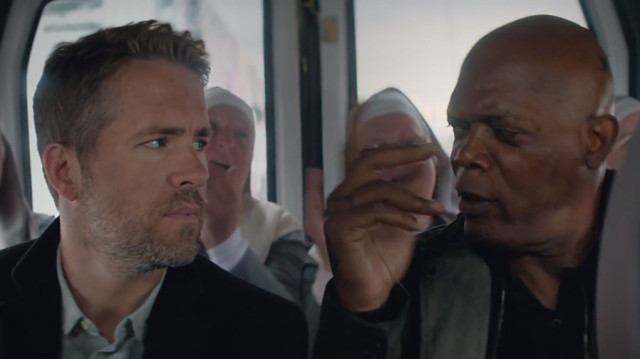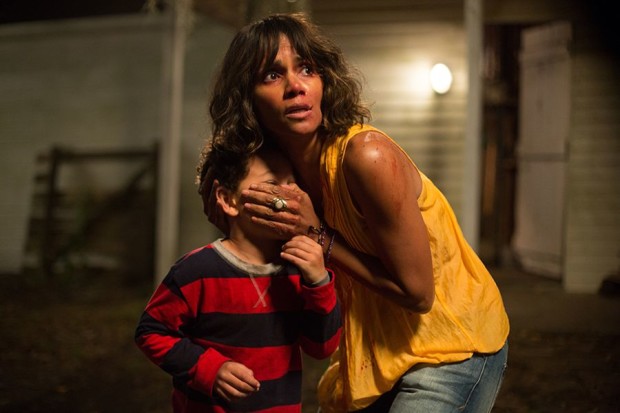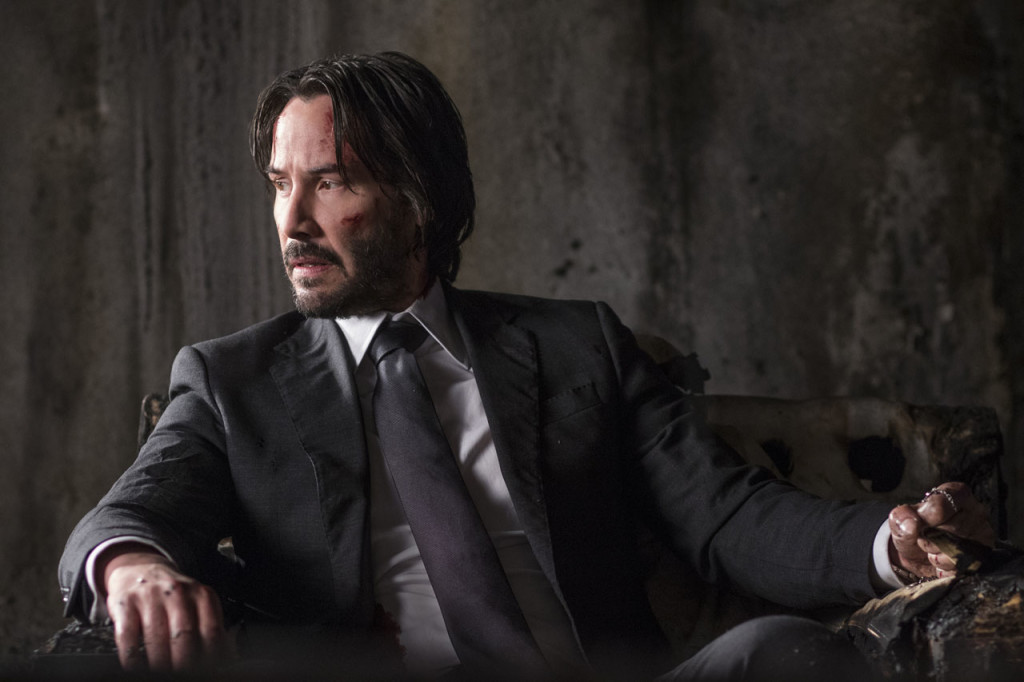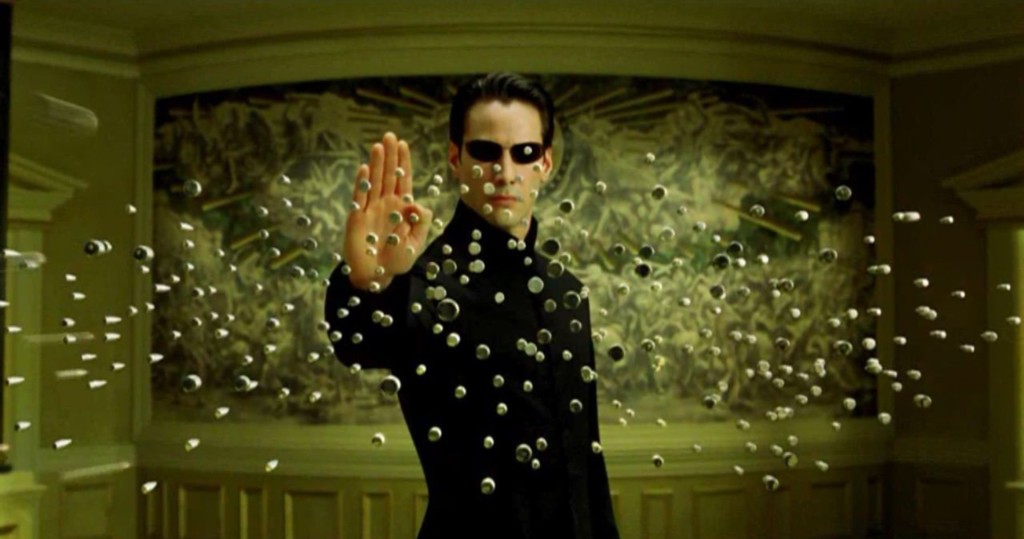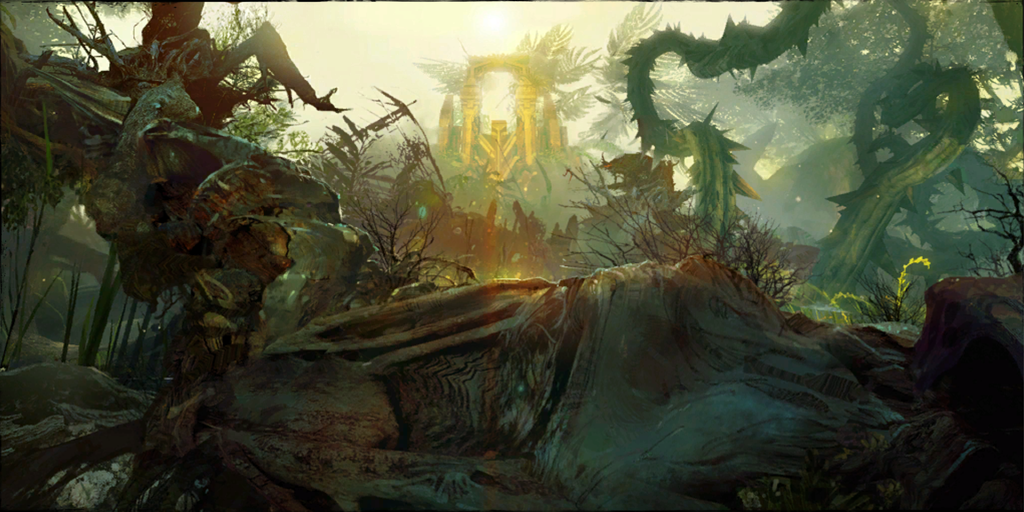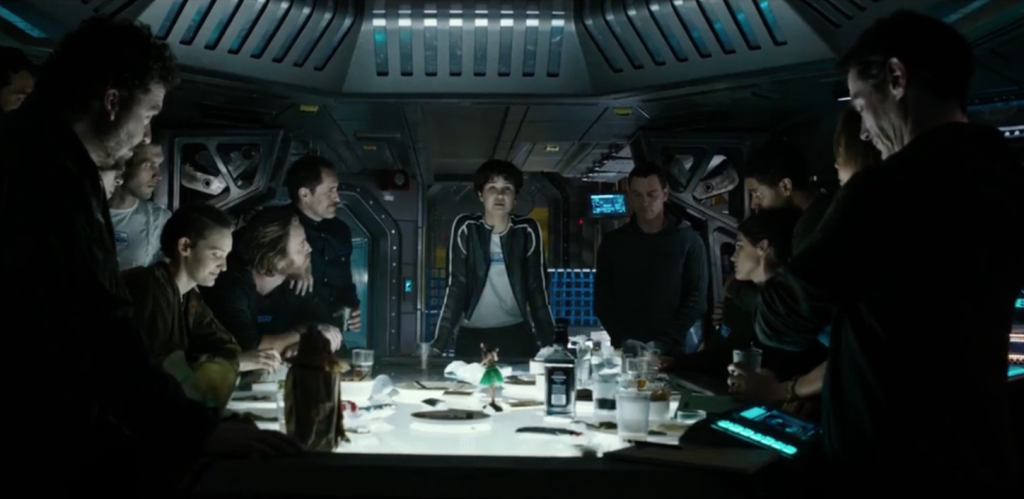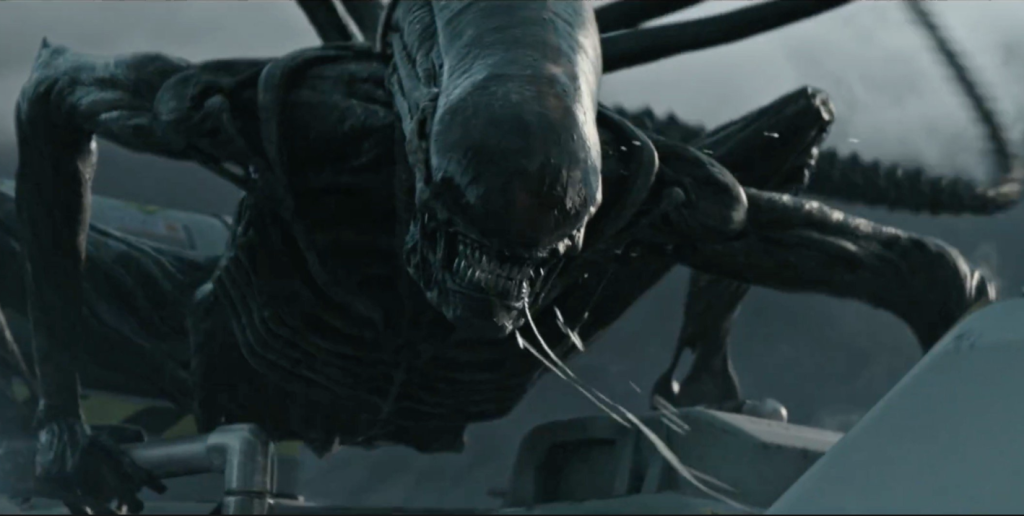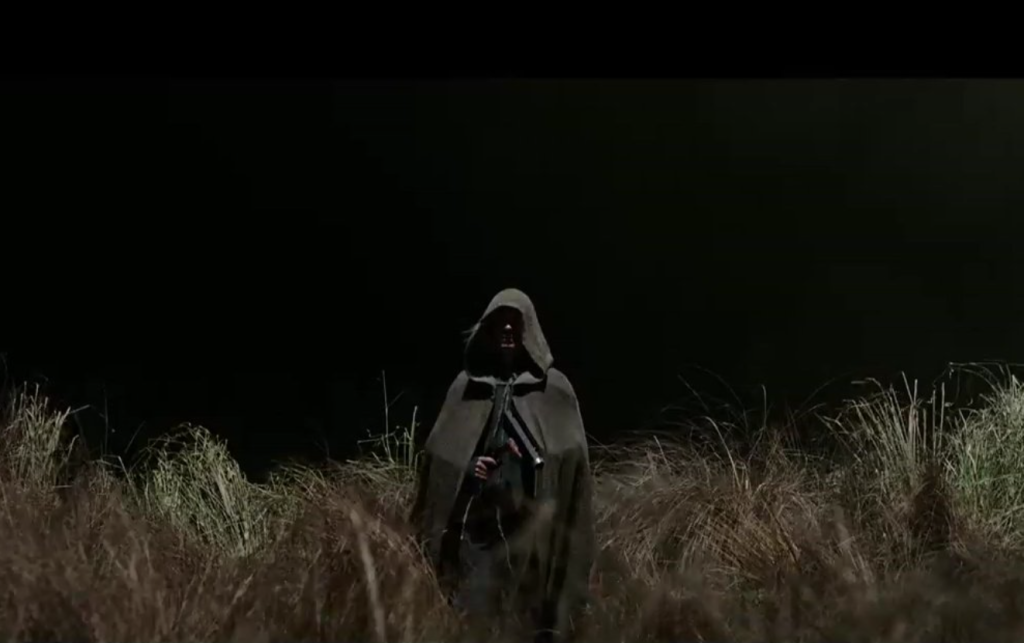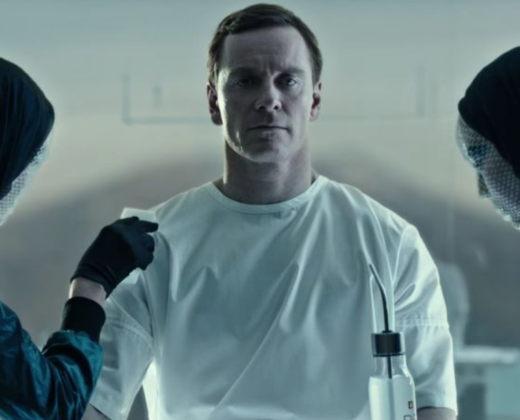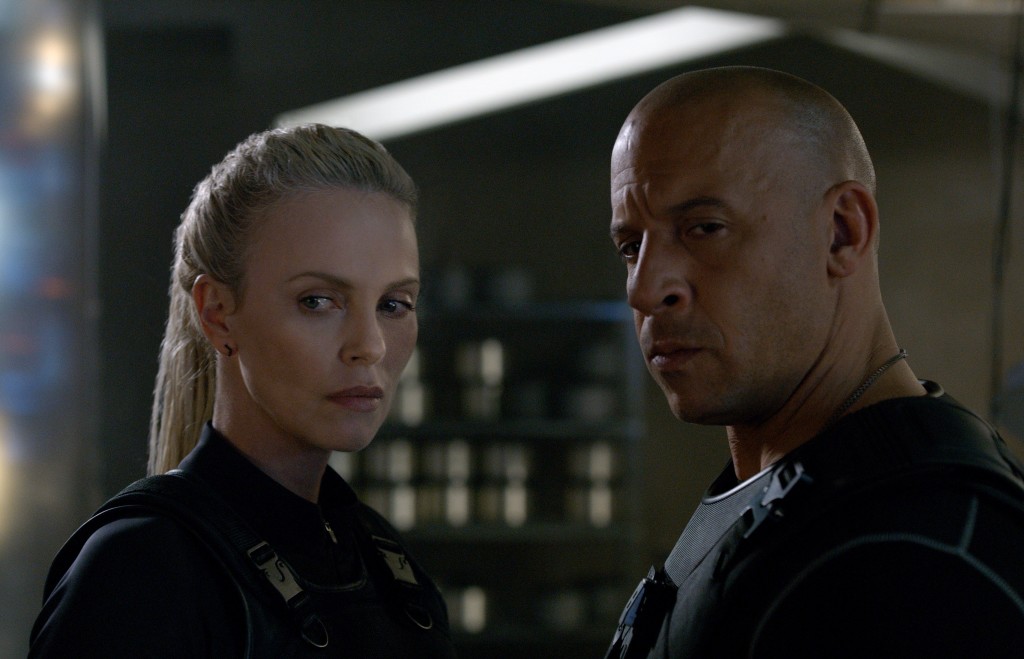Search Results for: James bond
The Spec Market has been on life support for awhile now. Some of this is due to things beyond our control – IP Superhero movies taking over the bulk of high-budget studio output (gone are the days of original titles like Men in Black). But an equal amount of blame should be placed on our shoulders. We haven’t been writing good screenplays. I mean, here are the top 10 non writer-director non-true-story spec scripts turned movies of 2017.
Girls Trip $115 mil – 89% RT
The Hitman’s Bodyguard $75 mil – 39% RT
Happy Death Day $53 mil – 70% RT
47 Meters Down $44 mil – 54% RT
Fist Fight $32 mil – 26% RT
Kidnap $30 mil – 36% RT
Life $30 mil – 67% RT
The House $24 mil – 16% RT
Wish Upon $14 mil – 17% RT
The Founder – $12 mil – 83% RT
When your fifth biggest spec-turned-film of the year is FIST FIGHT??? The system’s, shall we say, down for the count. I mean, imagine having to watch all of these movies in a row. It’s the fast food equivalent of eating luke warm chicken McNuggets, a stale shell taco from taco bell, mealy orange chicken from Panda Express, a six inch dry turkey sub no mayo from Subway, a day old chocolate donut from Dunkin Donuts, just the sauce from KFC’s latest tangy chicken coating offering, a Jr. Whopper, anything off the Long John Silver menu, a Domino’s Pizza hot wing, and a chili cheese dog from Wienerschnitzel, all in a row.
Man that analogy was WAY too specific. But you get the point.
Why have spec scripts gotten so bad? Well, remember that the big dogs, the David Goyers and David Koepp’s of the world, are pulling in 7 figures for assignment work, which means they’re not bothering with spec scripts. This leaves the bulk of the spec playing ground to newbies and low-rung screenwriters, those whose understanding of the craft is still in the early stages. Hence, they’re not as likely to write something great.
Another problem is that the better low-rung writers like to write in prestige genres (read: unmarketable) like drama, period, and true story. That leaves even fewer good writers who like fun popcorn genre material. I mean, let’s be honest. A movie like Kidnap gets made because it’s fast-paced, has an easy-to-understand high stakes premise, and can garner a name actor you can throw on a poster. That’s how all those Liam Neeson thrillers got made as well. But how many writers out there actually want to write Kidnap or The Commuter? Not many. So the pool of writers writing these cheap but marketable premises is few. And the quality of the output is a reflection of that.
The formula for jump-starting the spec market will come in one of two forms. Form 1 is a hot new writer with a super-unique voice: A Quentin Tarantino, a Diablo Cody, a Charlie Kaufman. What writers like this do is they get people excited about spec scripts again. And that has a residual effect on the market. It also inspires other writers to write in a similar fashion, and you have agents and producers trawling through the copycat material to take advantage of this new avenue of getting movies made.
The closest we’ve had to this lately is Max Landis. But Landis’s voice is reflected more in his social media output than his screenplays. We haven’t had a true unique voice game-changing screenwriter in awhile now so we’re due for one. I hope he’s one of you guys. Cause the sooner that writers starts making waves, the sooner the spec world heats up again.
Form 2 is we need two non writer-director spec scripts to be surprise successes at the box office within a few months of each other. It has to be two. If it only happens once, Hollywood will call it a fluke. But twice is the beginning of a trend. This almost happened with the success of spec script, John Wick. But there was no follow-up to make it a trend. Also, John Wick is a weird example, since the first film did reasonably well, but not bonkers well. It was more what they did with the second movie that elevated the franchise, and by then the buzz of John Wick as a spec was long gone.
With the way the industry is being run now, here’s where I’d say you should focus to become the writer of one of these surprise hits. REAL WORLD ACTION. GuyOrGirl-with-a-gun movies (John Wick, Jason Bourne), GuyOrGirl-in-a-car movies (Fast and Furious), Government agency-movies (new takes on James Bond). Or, SOME REAL WORLD VARIATION of these that isn’t out there yet. And that’s probably going to be the most likely avenue for success, since it will be new and fresh.
Here’s why those worlds specifically. Right now, Hollywood’s got its big-budget fantasy and science-fiction slots taken care of. They’ve got superheroes and Star Wars. Those are the most expensive movies to make. So they’re only going to spend all that money if they’ve got intellectual property awareness that’s through the roof. They’re not going to spend it on your unknown 300 million dollar sci-fi movie idea, “Space Wagons in the Milky Way.”
Real world stuff is cheaper to make and due to the way action travels, it’s not as important that the material be based on IP. But guys, there’s a rub to this. I’d go so far as to say a danger in it. Action movies are almost, by definition, generic. Tough guys saying tough things while either shooting a gun or driving a car isn’t interesting. If you’re going to write a great spec script in this arena, it will need to excel in some area. The characters will have to be deeper and more interesting than we’re used to. The set pieces will have to be stuff we’ve never seen before. The concept will need to be clever in some fresh way. The narrative will need to take us in directions we weren’t expecting.
Some of you might be wondering why I’m not mentioning horror. Get Out. Split. Keep in mind that both of those were writer-director specs. So they’re not as applicable. However, you’re right in pointing out that those types of scripts DO sell. The issue is more in how the industry sees these specs. Horror will always be seen as small potatoes. So the amount of money even the biggest horror specs garner will never be enough to jump start the spec market. For that, we need big money sales, and those are more likely to come from higher budgeted films.
The last sleeper arena I’d say could jump start the spec market is a really clever sci-fi premise that doesn’t cost too much (but also doesn’t cost too little). Remember, The Martix was shot for just 60 million dollars. Why? Because their premise cleverly allowed them to shoot 90% of the “science fiction” in real-world locations. If you can come up with a premise like that? Which promises something cool at a reasonable budget, that’s worth exploring. Ditto if it’s fantasy (this is basically what they did with Bright).
Keep in mind that the advice I’m giving here is SPECIFICALLY geared towards selling specs that could then get turned into big movies which would then jump start the spec market. There are other ways to succeed as a screenwriter. For example, if you care more about writing one of Disney’s Star Wars movies than you do selling a script, maybe writing “Space Wagons in the Milky Way” (with a better title, of course) is the route to go. If the script gains some traction and gets in the hands of Disney folks, there’s no reason to think you couldn’t get a meeting with the Mouse House.
Ditto if you want to be thought of for the next Wolf of Wall Street job. Write a big fun Scorsese type movie about flashy subject matter and flashier characters that takes place in one of the previous six decades. Show them that’s your wheelhouse and if the script is good, you’ll get meetings for that kind of stuff.
But if we’re going to jump start the spec market, it’s going to happen in one of the two ways I listed above. It’s up to you whether you want to follow that advice or carve your own parth. Whatever the case, I’m rooting for you. :)
Let’s talk about character descriptions for a minute, shall we?
You ever see that show “Botched,” about botched plastic surgeries? They need to make a show about botched character descriptions. Because I see them in nearly every script I read. For whatever reason, character descriptions trip a lot of screenwriters up. Luckily, you’ve got the guy who’s seen it all. Who’s read over 7000 screenplays. And he’s going to tell you what kind of descriptions work best. So, let’s jump into it.
There are four descriptions you’ll be working with.
1) Your hero.
2) Main characters.
3) Secondary characters.
4) Bit players.
Your hero gets the all-star treatment and can command anywhere from one to three sentences of description. This isn’t just to fully describe your hero. The long description is a visual indicator to your reader that this is the most important character in the script.
Sometimes, for story purposes, you’ll need to introduce other characters before your hero. This can lead to confusion, since typically, the reader assumes that the first character introduced is the hero. If you keep those pre-hero descriptions short then give us a big juicy description when your hero arrives, we’ll immediately know, “This is our star.”
Your main characters (the love interest, the villain) will get one to two full sentences of description. Secondary characters (the weird co-worker, the neighbor) will get one-sentence descriptions. And the bit players (a thug) will usually get a single adjective.
Descriptions are sort of like loglines. You’re trying to give us the highlights of that character without getting too specific. And here’s the important part. It’s more about the ESSENCE of the character, as opposed to the baseline visual facts of the character. I want you to read that sentence again because it’s where everybody screws up. Here, I’ll give you an example.
TOBY HANSON, late 30s, is tall with brown thinning hair, brown eyes, and glasses.
Everything I just told you there were facts. It doesn’t tell you anything about the character. Here’s the real description of Toby Hanson, the main character from the script, “Hell or High Water,” by Taylor Sheridan.
TOBY HANSON, late 30’s, a kind face marked by years of sun and disappointment, rides shotgun. It’s not the face of a thief, it is the face of a farmer.
Notice how we barely get any facts here. It’s more about the essence of the character, with the key phrase being, “a kind face marked by years of sun and disappointment.” Wow, that tells us so much! It tells us that this is a nice man who’s had a rough life, all in just 10 words! That’s how you pull off a description.
Moving on to main characters, here’s a description of Carolyn Burnham from Alan Ball’s Oscar-winning screenplay, American Beauty…
CAROLYN BURNHAM tends her rose bushes in front of the Burnham house. A very well-put together woman of forty, she wears color-coordinated gardening togs and has lots of useful and expensive tools.
That main character description is actually a little longer than the description for Sheridan’s hero. But that’s partly because Ball introduces Carolyn in action, tending her rose bushes. He needs to get through that first sentence before he can fully describe her. And, again, this description is bleeding with essence. She’s “a very well-put together woman.” She “wears color-coordinated gardening togs,” and has lots of “expensive tools.” Tell me you don’t know this character after reading that description.
Another description trick is to focus on how a character chooses to present himself/herself to tell us more about him/her.
For example, if I tell you that Jake has blond hair, you have no sense of who Jake is. But if I tell you Jake’s blond hair is always meticulously combed, never a hair out of place, you have a much better feel for Jake. He obviously cares about how he looks. If I tell you Carl wears jeans and a t-shirt, that tells you little. If I tell you Carl wears “skinny jeans and one of those overpriced vintage rock t-shirts that only celebrities can afford,” that tells you a lot more, doesn’t it? And all of this falls under the same umbrella. You’re trying to convey the ESSENCE of the character. Let’s see how we can use what we just learned to describe a secondary character.
LOGAN, 25, sports a boring navy blazer and boring khaki pants, the same outfit he wears every day of the week.
Finally, when you’re describing a character with a name but who’s only going to be in the script for a few scenes (a bit character), try to find that one adjective or phrase that captures them then move on. We don’t want to confuse the reader with some long description, making them think this is going to be some main character, then we don’t see them again for 60 pages.
PARKER, 40, always bitter about something, approaches the group.
In the end, screenwriting is still an art form and therefore the way you describe your characters is up to you. The above suggestions are merely guidelines based on reading a ton of scripts and seeing what works best. I’m actually pretty lenient when it comes to description length as long as the description is good. So you can play with the length if you want. But one thing I won’t budge on is the essence. A description is meant to convey the essence of a character. Always favor that over a perfect physical description, although preferably, you would do both.
Just to show you that you still have plenty of creative leeway when describing characters, here’s a rule-breaking description of Nick Sax from Tuesday’s review of “Happy.”
NICK SAX is projectile vomiting into a urinal. Oh, what fun!
He steadies himself, wipes his mouth with a sleeve. Look at this guy: 40s. A 6’2” locomotive wreck in a worn out trenchcoat —
He steadies himself in the mirror… this is the face of a man who’s lost it all. Skin flaking with eczema; dead-eyed – but with something volcanic smoldering down deep behind them –
Genre: Action/Adventure
Premise: The military contracts a disgraced Harvard professor who believes in dragons to escort them to a mysterious island where the mythical beasts potentially still exist.
About: What else is there to say? It’s another Max Landis script, baby. The one writer still making huge spec sales. This one, to my knowledge, has not sold yet. But if anyone has any updated information on that, let me know.
Writer: Max Landis
Details: 120 pages (Dec 2014 draft) Second Rewrite
Max Landis really likes orcs.
And dragons.
And fairies n stuff.
By the way, I finally figured out why the trailer for Landis’s Netflix flick, “Bright,” begins with that uncomfortable fairy-beating sequence. I realized that a meeting took place within the Netflix brain trust…
“How do we show that this is the kind of fantasy movie Hollywood can’t make?” So they had Will Smith beat the shit out of fairy, the message being: This ain’t your grandfather’s fantasy flick.
Was that choice a success? No.
But that’s what’s great about Netflix. They’re okay with taking chances. And chances often fail, as I’ve discussed in a recent Scriptshadow post.
So let’s get to today’s script, because I think there’s a huge screenwriting lesson we can learn from it. But before I tell you what that is, let’s dive bomb, dragon-style, into the plot…
Terra Obscura starts with one of the most traditional first acts you’ll find in a movie like this. Which was surprising since Landis is such an anarchist. Adam Burns just got fired from his Harvard professorial job after an interview of him saying he believes in dragons goes viral.
After his girlfriend reams him out for deep-sixing his career, Adam is kidnapped off the street by men who’ve watched too many movies, since they throw a bag over his head then yank him into a van. They then throw him on a helicopter, informing him that they’re going to an island where a Russian sub thats’s been programmed to launch a nuclear attack on the U.S. has crashed.
Adam makes it clear he doesn’t know why he’s here. “I don’t know what’s going on.”
“On the contrary,” the military official tells him. “You might be the only one who knows what’s going on.”
Cue our “HARD CUT TO” Predator helicopter moment. Oh yeah, this island they’re going to may contain… creatures of the magical type. That’s confirmed the second they fly over land when two dragons that would make Khallesi’s corset explode attack the Blackhawks.
Adam’s helicopter crashes and he and the men use a radiation meter to figure out where the marooned sub is. But on the way there, they run into orcs and fairies and Necromances and Dark Elves and other nerdy monsters. What Adam realizes is that the Russian sub may have been a ruse. Which means they’ve been lured here. But why? The answer may be much worse than a measly nuclear attack on the United States…
The first thing I noticed about Terra Obscura had nothing to do with Terra Obscura. Rather, it had to do with Skull Island and Ghostbusters. Strangely, two of the first three scenes in Landis’s script have helicopters arriving on an “invisible” island and giant monsters attacking them. After that, we flash back to show Adam getting fired from his job at a prestigious university because he yelled into a camera, “I believe in dragons,” then got fired by his boss after it went viral.
Both these scenes, almost verbatim, were in Skull Island and [the new] Ghostbusters. I see that this script pre-dates both of those films. So what does that mean? I remember Landis either worked on or was going to work on Ghostbusters. So maybe he wrote a similar scene there and they used it cause they had the rights? But I didn’t know Landis worked on Skull Island. And if he didn’t, does that mean someone just took this scene from Terra Obscura?
Of course, there’s a third possibility: None of us are as original as we think we are. Maybe these ideas are so obvious that everybody is writing versions of them. I don’t know. But I found that surprising. I was like, “I’ve seen both of these scenes already!”
There’s a bigger talking point I wanted to get into today, however. And it has to do with the fact that Bright got made and Terra Obscura (as of today) did not. Why is that?
BUDGET
Bright is set in the real world with actors wearing prosthetics. Terra Obscura is shooting in a jungle with a full slate of Lord of the Rings like creatures. In other words, it’s a lot more expensive.
I’m often asked by writers if they should write something big budget or small. The answer to this is more complicated than you’d think but I’ll give you the simple answer first. SMALL. Look at the data. How many non-IP giant-budgeted movies are made a year? Two? How many non-IP small budget movies are made a year? A LOT. So you’re increasing your number of buyers exponentially with a lower-budgeted script. Which is why Bright was kind of genius. It was a high-concept idea that was financially achievable.
However, there’s a growing belief that it’s so difficult to sell screenplays, you have to entertain the long game when thinking about which script to write. So if you want to write big-budget movies like James Bond, you write a James Bond-like movie, knowing that it isn’t going to sell. However, if people like it and you get buzz from it, you’re now brought into the Hollywood loop, and you’re in contention for assignment work on movies like that. So in that case, writing the big-budget idea was the way to go.
The point is, it depends on what your goal is. If you’re just trying to sell, Bright is the perfect conceptual blueprint. It’s a budget-friendly genre idea. But if you want to write for the Star Wars or Avatar franchises, write the best sci-fi fantasy script of the decade. Just know that you ain’t going to sell it.
As for the Terra Obscura script (which is the name of the island, if you were wondering), it was pretty good. It poses an interesting question for a script like this. Do you make your hero resistant or active? In the similarly set up, Aliens, Ripley is a boss. She’s all in right away. In Terra Obscura, Adam doesn’t want to be here at all. He’s scared. This is too much for him.
Both options have their pros and cons. When your hero is resistant, like Adam, he has somewhere to go as a character. It’s clear that there’s going to be an inner journey here. Him being able to overcome his fear will lead to him changing, which, when done well, results in a more impactful viewing experience.
However, in Aliens, Ripley is thought of as one of the best characters ever. And she was active and brave from the start. Why did that work? Well, Cameron decided to explore a different part of Ripley to show her growth. Both her distrust of the mission and her role as a mother to Newt became the backbone for her character growth.
And that’s the thing screenwriters forget. You’re not limited to one of those “fatal flaw” boxes. You can play outside the box.
Also, I find it dangerous to have a hero who’s too weak. Even if they’re eventually going to arc into a strong person, we’re going to be spending at least half the screenplay with them as a weakling. And audiences have trouble rooting for weaklings (not physical weaklings, but mental). That hurt my overall opinion of the script.
However, Landis knows how to keep a script entertaining. And whereas the Kong Skull Island plot points were visible from light years away, I didn’t know where this script was going. The Dungeons & Dragons creatures angle threw me off. And Landis’s love for that world resulted in numerous twists and turns I wasn’t expecting.
So Terra Obscura was just fun enough for me to recommend.
[ ] What the hell did I just read?
[ ] wasn’t for me
[x] worth the read
[ ] impressive
[ ] genius
What I learned: A trick for writing high-concept low-budget genre films is to utilize one fantastical element and place that element inside the modern-day world. What this does is it ensures that studios don’t need to create any expensive effects-driven worlds. They can shoot 95% of the movie in real world settings. Then, the one fantastical element (Orcs in Bright, or time travel in Primer) is what gives your script a big feel for a cheap price.
Genre: Sci-Fi
Premise: A colonist ship follows a distress call to a nearby planet where a mysterious entity awaits them.
About: Alien Covenant is the… 6th film in the franchise? 7th? Ahh, who’s counting anymore. The film opened this weekend at #1 at the box office with 36 million alien bucks. It was scripted by “All You Need is Kill” writer Dante Harper and the man responsible for writing all the recent James Bond films, John Logan. Ridley Scott is back with the bullhorn. And Michael Fassbender has returned in clone-form, as he’s playing two parts in the film.
Writers: Dante Harper and John Logan (story by Jack Paglen and Michael Green)
I have a soft spot for the Alien franchise.
Aliens was one of those experiences that shaped my love of movies. And when something is wedged that deeply into your nostalgic subconscious, anything else you throw at me in the same universe I’m going to see it. And that, in a nutshell, is why the movie business is so successful. Once they get you on something, they can market that something to you for the rest of your life.
But the sad truth is, the Alien franchise has been terrible since Aliens. I don’t care what anybody says – Fincher’s Alien 3 was an embarrassment. Then there was that “Am I really seeing what I’m seeing??” Winona Ryder Alien 4 catastrophe. From there, they went from “We don’t know what we’re doing” to “We’ve officially given up,” dropping that Aliens vs. Predator abomination on us. It got ugly, folks. It got real ugly.
Then Ridley Scott returned to the franchise and, finally, it seemed like chest-bursting might be cool again. Indeed, Prometheus brought a lot of fun back to Alien. But it still came nowhere close to the quality of the first and second films. Then came a confusing array of events that, at one point, had District 9 director Neil Blomkamp helming a parallel Alien se-prequel that went back to Alien’s roots (bringing back the series’ star – Ripley) while Ridley Scott, who couldn’t care less about Alien for 40 years all of a sudden wanted to make four more Alien films.
WTF?
If there ever was a moment that symbolized the clumsy architecture of this franchise, that would be it. So it shouldn’t be surprising that Alien Covenant is just that – clumsy. What starts off as a pretty awesome flick turns into… well… I don’t even know what. But knowing screenwriting like I do, I’d distill it down to “writers who ran out of ideas.”
And look, I’m not ignorant here. I understand the studio priority ladder. It’s so hard to match up a director’s schedule with a star’s schedule with a studio’s schedule. So when those three worlds match? You pull the trigger no matter what state the script is in. You have to. Because if you don’t, the movie never gets made at all. And what good is a script if it never gets made into a movie?
It’s then up to big-name screenwriters to accomplish the impossible – construct a great original screenplay in the amount of time it usually takes you to finish an outline. Despite being hired to fail, these writers go into these projects with the best of intentions – hoping to pull off a miracle. Sadly, they rarely do. Which is why we get so many movies like Alien: Covenant.
For those of you who have no intention of seeing the film (and you shouldn’t) the plot starts out pretty basic. A colony ship 7 years from their destination receives a mysterious transmission from a nearby solar system and decide to go inspect it, partly because this planet never appeared on their colony research and they figure, hey, maybe we can cut 7 years off our journey and colonize this planet instead!
Once on the planet, they go looking for the signal location, and a couple of colonists sniff up alien dust. Within minutes, these colonists are sick, and when our infamous aliens burst out of their bodies, a mad scramble ensues on the landing ship, resulting in a catastrophic accident that blows the ship up.
Up until this point, I was onboard. But then things get weird. Like, really weird. While getting attacked by other aliens, a… a jedi [????] shows up, scares off the aliens somehow, and tells the colonists to follow him. Mysterious Jedi Dude (I call him this because he was wearing Obi-Wan Kenobi’s robe for some reason) brings us back to some giant spooky circle town that’s been long since abandoned, and when he takes off his hood, we realize it’s David, the psychopath robot from Prometheus.
Meanwhile, the colonists have their own robot, Walter, who’s an upgraded version of David. Walter immediately senses that David has gone off the deep end, but is still intrigued by him, to the tune of the two sharing a couple of sex scenes together. I’m not kidding. I mean, they don’t have sex, but they basically have sex. It’s too weird to explain and too dumb to recap so you’ll have to seek it out yourself to get the full dumbass experience.
Eventually we learn that David’s been breeding alien embryos and is excited to have some new humans to experiment on. So the killing begins, and this is where things get stupider and stupider, culminating in one of the oddest action scenes I’ve ever witnessed, where a woman who’s had three lines up until this point becomes the movie’s main action star, willingly jumping out on the side of an out-of-control ship to try and kill an alien.
There’s more – a sort of extra final act – but I’m not sure why they included it, since everybody already knew what was going to happen. It’s bad writing on about every level.
So let’s talk about how this movie fell apart, because I’m fascinated by how these things happen. For starters, there was no main character. While I’ve discussed the no-win situation you place yourself in when you don’t build your story around a hero, it’s not a script killer. In fact, the very first Alien didn’t have a main character either! Ripley didn’t emerge as the “hero” until the very end of that film.
But there’s a reason why that worked and this didn’t. The first film was CONTAINED. So it kept our focus laser tight on the situation at hand. The tight nature of that story allowed for a more fluid situation to emerge with the characters.
Alien Covenant was the opposite. It was all over the place. It was part contained horror, part ‘group explores a planet,’ part mystery, part philosophical drama. The film was trying to be so many things that messiness was already embedded into its DNA. Trying to pack more messy (identifying our main character on page 100) onto already messy made things feel, well, too messy.
To Alien Covenant’s credit, it was attempting to be more than your average summer blockbuster. It posed big questions about God and creation and why are we here. You have to give the writers credit for not throwing another by-the-numbers popcorn flick at us. But you only want to pose big questions if you have the time it requires to come up with answers. If you try to answer the biggest questions humanity has ever asked with 2 weeks left before production starts, you probably aren’t going to come up with satisfying answers.
At some point, the writers realized the answers weren’t coming, gave up, and started using screenwriter shock-tactic tricks (robots giving each other blowjobs) to deviate your focus from the fact that nothing in the story made sense.
One of the easiest ways to tell that a writer has run out of time (or doesn’t care) is when characters start acting illogically. Why would the Captain (Billy Crudup) willingly follow a robot that he knows is systematically killing his crew into a room full of gestating alien eggs? “Take a closer look,” David says as the Captain checks on an egg. “You can trust me.” And the Captain then takes a closer look. That really happens.
And there isn’t just one of these instances. They happen again and again.
The only reason I’m not giving this film a “What the hell did I just watch?” is because I loved the first 30 minutes. Otherwise, this movie is awful. Pulling in 36 million is 20% less than what Prometheus opened at. So I’m hoping that’s it for this franchise. And yet, like the aliens in the movie, these franchises never seem to die. They had the audacity, the other day, to announce another Terminator film after Terminator: Genisys.
[ ] What the hell did I just watch?
[x] wasn’t for me
[ ] worth the price of admission
[ ] impressive
[ ] genius
What I learned: You have to be willing to move off your original idea if it’s not working. I get the feeling that Scott went into this wanting to create a philosophical science-fiction piece that was bigger than aliens chasing people down corridors. That’s a noble pursuit. But good writers know that stories are living breathing things. Sometimes what you thought would work ends up not working at all, and a direction you’d never considered all of a sudden makes the story a lot better. Be malleable as a writer. In the end, it’s about finding the best story, even if that’s not the story you set out to write.
Today we’re going to talk about summer madness and all the shapes, colors, and sizes it comes in. With Fast and the Furious dropping their bi-annual supercharged nonsensical treatise of loyalty and family on an all-too-eager public this weekend, how could you NOT get excited about the summer box office? I know I am. For both the good and the bad. Here are the key projects I’ll be keeping an eye on…
Dunkirk
It’s hard to have much of an opinion on a Christopher Nolan movie before it’s released since he’s so darn secretive. But even the most hardened Nolan films will agree that this is a pivotal movie for Nolan. His last two movies (The Dark Knight Rises and Interstellar) were major messes, with progressively sloppier screenplays. Exploring another genre was a good idea. But now we’re getting details on the plot, which involves soldiers… running away? Hmmm… that doesn’t sound very active or heroic to me. I’ll see any Christopher Nolan movie. They’re events. But if this doesn’t work, the Nolan shrine may need to be placed in storage.
Thor: Ragnarok
Wow. Where the hell did this movie come from?! As if Marvel didn’t have enough success. They take their worst character, pair him with the Hulk, put him back where he came from (another planet) and all of a sudden this looks like the freshest coolest comic book movie out there. There’s a screenwriting lesson to be learned here. You need to play with ideas more when you come up with a concept. If you go the obvious route, you come up with Thor 1 & 2. They found the right combination of ideas with this one and, out of nowhere, it’s awesome. This is now one of my most anticipated movies!
King Arthur
This movie was supposedly shot, then reshot, then one half of that reshoot was reshot and then someone shot themselves for shooting it in the first place. You can tell when a studio movie had extensive reshoots cause that money then comes out of the special effects budget. I suspect the effects to King Arthur were outsourced to a guy in Korea with an Atari 2600. You know a movie is bad when you don’t even know what it’s about after the trailer. What is this about? I suppose they should get credit for giving us a fresh take on King Arthur. But it just goes to show that fresh takes are still gambles. You have one that worked out (Thor) and one that didn’t (King Arthur). It’s time to put that sword back in the rock.
It
If you’re anything like me, you’re skeptical about this new Hollywood benchmark that’s taken over the internet: Most trailer views in 24 hours. It seems to be the only thing that anybody cares about anymore. However, everyone knows that the studios pay for at least a portion of these views. So how seriously can we take them? “It” is the new record holder, with something like 250 million views. Regardless of my trailer view skepticism, the movie looks great, and their adaptation approach was very clever. This book can’t fit into a single movie. However, a trilogy would’ve been too much. To split it into the kids film and the adults film was a stroke of genius. And we all know how much I loved Andres Muscietti’s previous effort, Mama. So count me in!
Guardians 2
There is no franchise more tuned into what the public is looking for than this one. Guardians 2 has just the right blend of character, humor, action and Groot. And you can already tell that this film is more confident than its predecessor, a movie where director James Gunn admitted that he thought he might be making the next Pluto Nash. Guardians will probably win the summer box office prize, a prize it will, unfortunately, have to hand over to Star Wars at the end of the year.
Spiderman: Homecoming
I’m neutral on this one. It seems to me like they’re making a smart play though. You know that old saying, “When you try to please everybody, you please nobody?” That’s clearly what was going on in the last two Spiderman movies. They wanted so badly for everybody to like them that you could feel it permeating off the screen. With this new version, they’ve kinda said, “Let’s move away from that” and gone back to Spiderman’s roots, which are in high school. So they’re targeting a more specific demographic, the teenage crowd, and we’ll see how it works. I know I liked Cop Car (the director of that tiny film landed this job). And if there’s a lesson to be learned for screenwriters, that may be it. Make a small passion project and direct it yourself. Who the hell knows what might come of it?
The Fate of the Furious
I don’t care what you say about Fast and the Furious. It still has the best and most inventive set pieces in the action game. It beats out Mission Impossible, Bourne, and James Bond in that category. In fact, one of the most common notes I give on action specs is to be more inventive with your set pieces. Fast and the Furious had two cars dragging an apartment sized vault through the city streets. You need to do better with your set pieces if you want to compete. Now regarding this plot point of Dominic turning on his team. How probable is it that it’s part of a bigger plan to help his team? One thousand percent? One million?
Valerian
For super movie nerds, this is a project all of us have been following for awhile. Why? One answer: The Fifth Element. This was going to be what Luc Besson would’ve done with The Fifth Element had he had more money. Besson is a great filmmaker. And he was supposedly creating sequences and techniques that had never been used before to give the audience a one-of-a-kind experience with Valerian. But after seeing the trailer, I was shockingly disappointed. This was it?? Sure, it seemed okay. But it hardly felt like something I’ve never seen before. Then it struck me. It wasn’t the visuals I was having a negative reaction to. It was the characters. How fucking boring do these two characters look? They mumble. They have no chemistry. There doesn’t seem to be any conflict between them (in fact, it’s the opposite, they seem to like each other – major screenwriting mistake!). Watch the Guardians and Thor trailers then watch this. Note how much more personality the characters have in those trailers. Valerian is in trouble. And let this be a lesson to screenwriters everywhere. Don’t get lost in your world-building. Make sure the characters are compelling first. Or nothing else matters.
Alien: Covenant
Why do I get the feeling that Scott’s only making these movies out of spite? And when Scott goes spite, he goes FULL SPITE! After this film, he has three more Alien movies lined up. Say what?? Not to jump on Thor’s jock yet again. But the idea with any franchise is to elevate, find fresh new ways to explore the subject matter. This looks like the same exact movie as the last one. I don’t get it.
Rest of the movies: I’m not a fan of the DC films so I’m not looking forward to Justice League or Wonder Woman. It seems that their big mistake is hiring visual directors, whereas the Marvel guys are hiring storytellers. As for “maybe” movies – Pirates, The Mummy, and Apes – the reinvigorated Pirates looks like it’ll be the breakout (can Disney do no wrong?). But The Mummy doesn’t look bad either. Don’t get me started on Transformers (they could slip one of the previous four films in theaters, slap a “5” on it, and I swear nobody would notice. Save 200 million bucks). One day somebody’s going to do a documentary on how the five worst movies ever made became five of the biggest box offices successes of all time. Of the two Stephen King offerings, The Dark Tower was never my cup of tea. “It” was so inspired. Tower just dragged on. I never made it to the end (8 books!), but I hear the ending was terrible. All that investment for no payoff. I have a feeling this franchise isn’t going work. Still, one for two ain’t bad.
And that’s my roundup! What about you folks? What are you looking forward to? What movies do you think are undervalued? Overvalued? Chime in in the comments!

